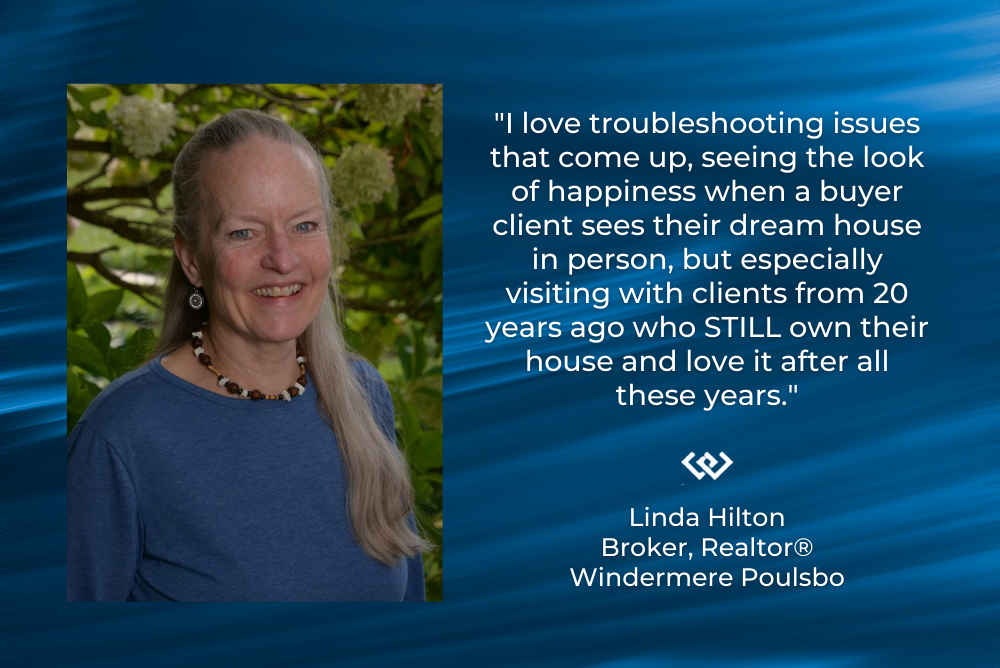Preparing to Sell? Here’s How to Minimize Stress

Preparing to sell your home in Kitsap County can feel overwhelming. Whether you’re selling a historic single-family home in Poulsbo, a waterfront retreat on Bainbridge Island, or a remodeled condo in Bremerton, the process always comes with many tasks and considerations. But with thoughtful preparation, you can proceed with clarity. Here’s how to minimize stress and begin with confidence.
Start With a Clear Plan and Timeline
Reducing stress when preparing to sell your home starts with a solid home-selling checklist. You’ll also need to create a realistic timeline for selling. By doing so, you’ll stay organized and focused and reduce the number of last-minute decisions. While reviewing the checklist and developing your timeline, also create a budget. This will help you formulate an even clearer plan and timeline by listing any obvious repairs you’ll want to make when preparing to sell. Additionally, home-selling costs are something you’ll want to factor into your budget.
If your plan to sell is not dictated by something time-sensitive like a new job, you may be wondering when the best time to sell is. While seasonal buyer activity can influence how long it takes to sell a home, there are always serious buyers looking in Kitsap County. If you need to sell soon, it’s important to understand the local real estate market so you can set realistic expectations.
Early decisions about whether to make improvements or sell as-is will also impact your timeline. The important thing to focus on in the planning stage is getting everything on paper, mapping it out financially and chronologically as best you can, and recognizing what you can and can’t control about this process.
Declutter and Depersonalize Early
Decluttering before selling is especially important in desirable markets like Kitsap County, where buyers are often looking for homes that are move-in ready. Selling a house you love can bring up a mix of excitement, nostalgia, and uncertainty, so going through your possessions can be difficult. But if you want your home to sell well, this step is crucial. Carefully pack up your favorite photos and mementos and donate items you no longer use or need. When a buyer steps into your home, you want them to be able to easily imagine living there. Clear spaces will also help them focus on your home’s best features like spacious living areas, beautiful views, and an expansive backyard.
Focus on High-Impact Improvements
When considering home improvements before selling, it’s important to focus on updates that add value. In Kitsap County, buyers often appreciate well-maintained homes with thoughtful, functional updates rather than major renovations. Cost-effective home upgrades include a new front door, fresh interior paint, updated lighting, new kitchen and/or bathroom hardware, and curb appeal improvements. These can increase the home’s value. If your home is near the water or in a wooded area, you’ll want to address moisture-related maintenance. If you’d love to update your home but worry about the process and the cost, check out the Windermere Ready program. It offers expert guidance and an upfront investment of up to $100,000.
Get Professional Support Early When Preparing to Sell
Trying to navigate the Kitsap County real estate market on your own can quickly become stressful. Working with an experienced real estate agent who understands local neighborhoods, pricing trends, and current buyer expectations can make a significant difference. Our Windermere Real Estate agents provide clients with a free Comparative Market Analysis (CMA). A CMA enables you to see what your home is currently worth. This custom report will also compare your home to similar ones in your neighborhood. Pricing a home correctly is key to a smooth home-selling experience. A great real estate agent not only provides an in-depth CMA and a data-driven approach to home pricing but also offers expert advice, a listening ear, and the skill set to be your advocate.
As our Managing Broker, Julie Bray-Larsen explains, “After choosing your trusted Real Estate Advisor, it’s crucial to clarify expectations & the Seller’s goals for timing on hitting the market, pre-listing repairs & budget for those items, to create not only the terms of a listing agreement, but a partnership based on trust. Each client has different goals. Our job at Windermere is to support our clients and make the process as stress-free as possible.”
A knowledgeable seller’s agent has an excellent network of vendors to help with repairs, staging, and much more. Their guidance will put you at ease and help you make well-informed decisions.
Try to be Flexible
Once your property goes on the market, it’s time to show it off. If you’re still living in the home while it’s being shown, this may feel disruptive to your daily life. Remember that it’s temporary. And, you can create a simple, repeatable system to ensure your home stays ready to view, even if you’re selling a house with pets and/or children. In Kitsap County, where buyers may be traveling from Seattle, showings can sometimes cluster around ferry schedules or weekends. Have a manageable checklist and a pet plan. This will reduce stress and help you stay flexible. Allowing for multiple showings/open houses can be very beneficial. If a seller only allows a few brief opportunities to see the home, it may sit on the market longer because it isn’t easy to view in person.
Many sellers face unexpected issues, but staying flexible and communicating openly with your Broker can minimize setbacks. Many challenges can be seen as learning opportunities. The best home-selling experience is built on preparation, strategic guidance, and trust. By planning ahead and working with a knowledgeable real estate professional, you can focus on the aspects within your control and utilize local expertise.
Should You Renovate Or Sell Your Home As Is?

You’ve decided to sell your home, so should you renovate or sell your home as is? As with all decisions, there are pros and cons to each choice. If you choose to renovate your home, it will most likely sell for a higher price and faster, but remodeling projects can be costly. And, some don’t have a high return on investment. If you choose to sell your house as is, you save money in the short term but you could miss out on making more money on the sale of your home. It’s important to understand the factors involved and work with your real estate agent.
Home Remodel Cost Analysis
One of the most important factors is the cost of home remodeling projects. First, how much are you willing to spend? Second, can you expect a decent return on investment (ROI) when you sell your home? Thankfully, you don’t have to figure this out on your own. Your local real estate agent is a great resource. Who you choose to work with matters. They should be an expert on your local market. It’s their job to evaluate your home and to know which remodels or home updates are most beneficial in your area.
Doing A Home Remodel
If you decide to move forward with renovations, the next decision to make is whether to undertake DIY projects or hire a contractor. If you are qualified, can you dedicate the time required to finish the project within your home sale timeline? While hiring a contractor costs more, it may be worthwhile. You may want the peace of mind of working with a professional, especially for highly technical projects.
According to the Remodeling 2024 Cost vs. Value Report, on average, homeowners paid approximately $25,000 for a midrange bathroom remodel and it had a 74% ROI. For a minor kitchen remodel nationwide, they paid about $27,500 and it had a 96% ROI. For your home, simpler upgrades that increase your home’s value may be better. Consider painting kitchen cabinets, refinishing hardwood floors, or installing new bathroom tile.
If you’d love to remodel or update your home but the price tag is just too much, check out the Windermere Ready program. This program provides expert guidance from one of our Realtors, and a loan of up to $100,000 to assist with these types of expenses. The loan term is six months and there are no upfront costs. Also, no monthly payments are due during that time. When your home is sold, the loan is paid off in one lump sum.
Selling Your Home As Is
If you decide not to remodel your home, you may ultimately sell your home for less. But you won’t have to deal with the costs and headaches that can come with renovations. Plus, remodeling a home you are about to sell means the buyers get to enjoy the upgraded benefits, not you. Lastly, choosing not to remodel or make any upgrades will speed up your timeline. But it will also impact your home-buying budget. It’s important to remember the costs of buying a new home.
Market Conditions
Local market conditions are another factor to consider when deciding whether to renovate or sell your home as is. If there’s strong demand and limited supply in your area, high competition among buyers will drive up prices. However, you’ll still have to take steps to prepare like making necessary repairs. And, staging your home gives buyers a great first impression and helps them easily imagine themselves in the space. That being said, sometimes certain projects like adding stone veneer to your home’s exterior (153% recouped at resale) or replacing your garage door (194% recouped at resale) can really increase the value of your home.
Currently, we’re seeing a more balanced market here in Kitsap County. More inventory is coming on the market and so buyers have more options and more negotiating power. When weighing different actions you could take, be sure to factor in your timeline and goals. Also, you’ll want to dive into your local real estate market’s current stats. Below is a brief look at our second quarter’s highlights. Talk to your agent to gain valuable insights. Our agents provide clients with a free Comparative Market Analysis (CMA). A CMA enables you to see what your home is currently worth compared to similar homes in your neighborhood.
Regardless of which direction you decide to go in, we hope you have the data you need to decide with confidence.
Important Questions to Ask When Touring a Home

While touring a home can be exciting, it’s best to come prepared with questions. Doing so ensures you’ll stay focused on examining the property vs. solely admiring it. It’s essential to keep your wants and needs at the forefront throughout the home-buying process. Just because a property is gorgeous, in an ideal location, and/or fits your budget, doesn’t mean it’s truly the right fit for you. There’s more to consider.
Questions to ask about the home
Whether you’re going to an open house or you’ve scheduled your own tour, be sure to ask the questions below. Some information may be included in the listing remarks, but you can find out so much more by asking or having your local real estate agent ask for you.
- How long has the property been on the market?
If it has been sitting for a while, is that due to the time of year or the recent shift in the market? Or, is there another reason? Sometimes homes sit on the market because they are unique properties that don’t necessarily meet the needs of many buyers. Other times, the home may not be properly priced. Or, it may need a significant amount of work. - What is included in the sale?
You’ll want to know in advance if the home currently has any custom appliances or fixtures that won’t be included. - Are there any known repairs or issues?
An inspection will detail these issues, but it’s important to ask any clarifying questions you may have. For example, if roof repairs were recently done, was it because of something minor or major? There’s a big difference between replacing some shingles and doing a major repair due to a leak that involved water damage. Sometimes sellers won’t know of an issue and that’s why it’s important to have an inspection done. Additionally, a lender will require an inspection. The lender may also state certain repairs must be done before moving forward. This applies to major defects that could negatively impact a home’s property value. - When was the house last updated or renovated?
Older homes can either be well-cared for or in need of some TLC. Knowing how old key components of the home are will help you better understand what work may need to be done now or down the road. Then, you can factor that into how much you’re willing to spend on the home now and what is in your budget to invest in the property in the near future. For example, how old is the HVAC, the roof, the garage door, and the appliances that come with the home? - Are there any special maintenance requirements to consider?
Will this home need a certain amount of weekly or monthly upkeep? If this home has a large lawn, a big garden, or other specific features like a pond, are you able to do that work or budget for someone else to do it regularly? If it’s a waterfront home, will you need to worry about waterfront structures like retaining walls, boat lifts, and/or a dock? If the home is in a wooded or rural area, are there pest prevention methods to consider or potential costs related to caring for this property? For instance, a home on acreage may require upkeep of barns or stables, an ADU (Accessory Dwelling Unit), or a private driveway or trail. - Is there a Home Owners Association (HOA)?
If the home has an HOA (Home Owners Association), are there specific requirements regarding landscaping and lawn care? Do you have to get HOA approval to make certain changes like painting the exterior a certain color? How much are the HOA dues and fees and what do they cover? - When is the offer review date?
If you love the home and want to make an offer on it, it’s important to understand the seller’s timeline for reviewing and accepting offers.
Questions to ask about the neighborhood
-
- What does it feel like to walk or drive around the neighborhood?
When seriously looking at homes for sale in a certain area, it’s helpful to walk or drive in that neighborhood. By doing so, you may realize how much you want to live in a quiet community surrounded by nature. Or, you may prefer a bustling suburban or more urban area. Even if it’s in the type of environment you desire, this beautiful home might be very close to a long term construction project or adjacent to an area you’d like to avoid. Walking around a neighborhood can really give you more of an idea of what it would be like to live there, how safe it feels, who your neighbors would be, and if the house and the community fit your lifestyle. - What amenities does the neighborhood or surrounding area offer?
If the home you’d like to buy has a nearby fitness center, clubhouse, park, beach, or trail, check all of that out after touring the property. It’s also important to think about your commute time and businesses you frequently visit. On a map, certain amenities may seem really close. But when you’re actually there, you may realize what seemed walkable or a short drive away may not be. This could be due to traffic at certain times of the day, a lack of sidewalks, or other accessibility issues. Your local buyer’s agent can provide insights. They should be able to give you information about local schools, community features, pros, and cons. - What transportation options are available?
Here on the Kitsap Peninsula, many people commute using the WA State Ferries or the Kitsap Fast Ferry. Kitsap Transit also has routed buses, and there are on-demand services. It’s important to think about what your daily life would look like if you purchase this particular home for sale. How would its location impact you positively or negatively? For instance, if you’re retiring, you may not need to worry about commuting by ferry, but you may want to be able to live in a walkable area. Or, perhaps you want to easily take a bus or ferry to a museum or sports event.
- What does it feel like to walk or drive around the neighborhood?
Questions to ask when touring a home virtually
Touring a home virtually isn’t ideal, but if you’re an out-of-state buyer unable to see the home in person, it’s the next best option. Hopefully you have a trusted friend, family member, or a great local real estate agent who can lead the way. Here are some additional questions to ask them while they are walking through it with you on screen.
- Is there a floor plan I can reference during the tour?
Having a floor plan to refer to while someone is walking you through the home online can be very helpful. It gives you a better sense of where things are and how everything is situated within the home. This can also give you a clearer sense of the size of different rooms. Many properties today are well staged and are advertised with top-notch photos. This can mean some rooms seem bigger than they actually are. - Can you give me the measurements?
While a video chat is more raw than a professional 3D tour, it can’t replace the in-person experience. So, if you can’t be there, get them to dig into the details for you. Ask about the square footage of specific rooms and/or measurements of particular areas within a room. You may assume a window or counter is about a certain height or length, but you won’t know until you ask them to measure it for you. This is particularly important if you’re assuming certain items in your current home will fit in this new home. You may have a piano or dining room set you don’t want to part with, but will it work in this home? That may not be a deal breaker for you, but it’s helpful to factor this information into your decision making process. - Are there any sights, smells, or sounds that give you pause?
The person walking through the home for you must be your eyes, nose, and ears. If they notice any concerning sights when looking around the home or through the home’s windows, they should say so. Is there a glaring eye sore across the street? Does anything in the home look very worn or damaged? Are there any areas that look different from the photos? Also, it’s important that they describe problematic details like mold, large cracks, or dents. Similarly, you need to know about any weird smells in the home. Ask them to describe what they smell in the entryway, kitchen, basement, bathrooms, etc. To focus on the sounds in and near the home, ask them to open the windows. Have them turn on the faucets, fans, and the garbage disposal. Walking around the exterior of the home, in the yard, and in the neighborhood will also be beneficial.
6 Common Real Estate Misconceptions

Although the internet can be a helpful resource, it is also full of misinformation and sound bites that lack context. When it comes to our industry, there are many misconceptions about real estate, so we thought it would be helpful to address six common ones.
1. Renting is cheaper than homeownership
If you frequently relocate, it may be more cost-effective to rent than to buy a home. However, if you want to put down roots, homeownership can be beneficial. Investing in real estate is often a positive financial move to make, with appreciation typically occurring over a five- to nine-year period. While you don’t have the flexibility you have with renting, you are building equity, accumulating wealth over time. You’re investing in your future versus living in the present. Granted, there are other factors to consider, like the local housing market, your financial situation, and your personal and professional goals. But, overall, homeownership can be quite advantageous.
2. As a first-time homebuyer, you need to have a 20% down payment
Many first-time homebuyers think that they need to have a sizable nest egg in the form of a 20% down payment to even consider buying a house. But 20% isn’t mandatory across the board. In fact, conventional loans can require as little as 3% down for qualified borrowers. Additionally, there are zero down payment loans such as the VA loan for those who qualify. It is, however, important to keep in mind that the larger your down payment, the less you will need to borrow. If you borrow less, you lower your monthly mortgage payment, and that means less interest paid over the life of the loan.
3. Selling a home FSBO (For Sale By Owner) will save you money
If you’re considering selling your property, you may think selling it yourself will ensure that you save money. Sure, you won’t have to pay a real estate agent’s commission fees, but there are many risks to consider. In some FSBO cases, the home isn’t properly priced and the owners miss out on potential buyers, increasing how long the property is on the market. In other cases, the home is undervalued and the owners lose the money they could’ve made on it by selling it for too little.
A great deal goes into effectively preparing a home and strategically marketing it. A highly-rated, local seller’s agent can conduct a free Comparative Market Analysis (CMA), discussing it’s current value, how it compares to similar homes, and developing a comprehensive approach with next steps. A great agent knows which updates will benefit your home before putting it on the market, how to properly prepare it, and the advantages of partially or fully staging it. They will ensure that it’s expertly advertised with professional photography, a brokers’ tour, and print and digital marketing campaigns. Furthermore, FSBO listings are not found on the MLS so you’re really limiting your pool of potential buyers.
Selling a home yourself also comes with the risk of legal issues. Negotiations and a variety of legal forms are also part of this complex process. You want a knowledgeable advocate in your corner. Your home deserves to be sold with a professional’s expertise, and your wallet will thank you. In fact, FSBO homes usually sell for less. According to the annual survey conducted by the National Association of Realtors in 2024, “FSBO homes sold at a median of $380,000 in 2023, still far lower than the median selling price of all homes, which was $435,000.”
4. All real estate agents are the same and simply deal with paperwork
While these transactions do require a lot of paperwork, a good real estate agent does so much more. Whether you’re buying or selling, you want someone who knows the local market and the nuances of different neighborhoods. A well-connected agent has access to a wide range of listings, can compile comparative data, and is connected to the local community. They also have excellent resources and local vendors, and will project manage the entire process as your guide. Because real estate is so tied in with big life changes, many agents serve as a trusted confidant, and help in various ways from renegotiating after an inspection (more on that below) to helping with lenders, repair workers, and movers. Many bend over backwards when it comes to preparing the home for sale or finding their clients that dream home that will be the perfect fit. Whether you’re wanting to buy or sell, our highly rated Windermere Poulsbo agents are ready to assist. We say we’re “all in, for you” and we truly mean it.
5. Home inspections aren’t necessary
Home inspections are valuable for both homebuyers and sellers. If you’re selling your home, a pre-listing inspection can prevent any surprises from popping up when the home goes on the market. If you’re a buyer, a pre-listing inspection can give you peace of mind, identifying any maintenance issues that need to be completed right away. It creates transparency and builds trust between both parties. Also, it can help the real estate agent properly price the home if you don’t want to do an expensive repair before listing it. If you’re the buyer, and the seller had a pre-listing inspection done, you can accept that one or have your own done. This inspection can also be used in negotiations with the seller to ensure your needs are met and any concerns are addressed.
6. Fixer-upper homes are always a great investment
Some buyers think that fixer-upper homes are easy to spruce up with a few cosmetic improvements. But there is quite a range when it comes to fixer-uppers. If you haven’t seen the old Tom Hanks movie “Money Pit”, we suggest checking it out. Some of these homes have serious structural issues. Others may not be a sound investment based on the scope of repairs, the location, the local market, and/or your financial situation. For example, a fixer-upper may need all new flooring, new siding, and a new roof while another might only need minor roof repairs, a fresh coat of paint, new lighting fixtures, and some landscaping.
If you are looking for a fixer-upper needing a smaller-scale renovation, avoid homes for sale that would require re-roofing, replacing HVAC systems, and full-scale room remodels. While fixer-uppers are enticing to handy individuals or people who know great, local contractors, there are always different possible outcomes to consider. Projects may run long and over budget. The costs of supplies may increase and the market may change once the house is ready to move into or to rent as an investment property. We suggest talking to your homeowner’s insurance beforehand to understand what’s covered and what isn’t. Yes, fixer-uppers have a lot of potential, but you want to ensure you’ll get that return on your investment.
Home Buying FAQs: Investment Properties, Co-Buying & More

There are different ways to go about buying a home. As a homebuyer, your situation, goals, and expectations about the process can vary widely. To demystify the home-buying process, we’ve compiled a list of some of the most common questions with useful information to help you get started.
How can I start the home-buying process?
It’s important to start the home-buying process by answering some key questions.
- Where do you want to live and why?
- What amenities, aspects of the neighborhood, and the community are you looking for?
- When it comes to the type of home you want to buy, what are your needs versus your wish-list items?
- Are there life situations to consider when factoring in the type of home that will suit you/your family best? (For example, needing a single-level home, a fenced backyard, a home office, or proximity to the ferries for your commute.)
- What is your budget?
A highly rated local real estate agent will help walk you through the home-buying journey. So finding a great agent and then discussing your answers to the questions above will help you create a path forward.
Another excellent resource is Windermere’s Guide to Buying a Home. It offers a comprehensive overview of the home-buying process, including pre-approval and other steps involved. Additionally, it explains purchase and sales agreements and inspection reports. You’ll also find helpful moving tips in that guide.
What should I look for in an investment property?
There are two types of residential real estate. One may be used for you to own as your primary residence. The other may be used as an investment opportunity. In this case, you, as the owner, do not occupy the home but purchase it for financial gain. If you are in the market for an investment property, there are different factors to consider. Just as you would consider when purchasing your primary residence, consider the area the investment property is in, local amenities, and future development of that area. Additionally, consider current rental listings and vacancies, major employers in the area, and average rents. Once you purchase an investment property, follow all laws to ensure it is properly maintained and gets rented quickly for the highest price. If you don’t want the stress that can come with being a landlord, Windermere Property Management is a wonderful local option here in Kitsap County.
What are the ownership options when I buy a home?
If you are looking to purchase a home, you may decide to do so independently. In this case, you will be the sole owner of the home. Another option is to co-buy a property. In this case, ownership of the property is split between two or more people. Be sure to consult with a real estate attorney to iron out details of the agreement, such as down payment, home repair, and mortgage payment responsibilities between the parties.
There are pros and cons to co-buying a property. On one hand, it can be a good way to enter real estate if you don’t currently have enough funds alone. On the other hand, there is the risk the co-buyer will be unable to uphold their end of the deal should their financial situation change. Carefully consider your situation and possible outcomes when deciding how to purchase a property.
What types of home loans are there?
There are many different home loans, and a mortgage consultant is going to be your best resource to ensure you find the right one. Loan terms can range anywhere from 10 years to 30 years. Fixed-rate mortgages have one interest rate for the entire length of the loan, whereas a variable-rate loan may change over time.
Conventional loans typically require 20% down, but other loan programs can assist individuals such as first-time homebuyers. An FHA (Federal Housing Administration) loan only requires 3.5% of the purchase price down, while a VA loan offers zero down as long as the sales price isn’t higher than the home’s appraised value. Check out this Q&A with Mortgage Consultant Cherie Kesti for an in-depth look at mortgage options.
How can I reduce my monthly payment?
With today’s interest rates, many buyers are looking for ways to decrease their monthly mortgage payments. First and foremost, you should be in a strong financial position to take out a home loan. Have as much cash on hand as you can for the down payment. You want your credit score to be as high as possible and to reduce or eliminate your debt.
Another strategy to consider is to buy mortgage points. You can purchase discount mortgage points upfront to buy down the interest rate. (And thus, lower your monthly payment). Check out this buy points mortgage calculator to see if it’s worth it for your personal situation.
Home buying is complex. Whether it’s your first time buying a home or you are a seasoned investor, building a team of local experts to help you achieve your real estate goals will make way for a much smoother, more enjoyable process.
New Agent Spotlight: Linda Hilton

With decades of experience serving homebuyers and sellers, Linda Hilton possesses a wealth of knowledge. We’re so glad she returned to our Windermere team. Linda has fascinating stories about everything from real estate transactions to her experiences abroad. Learn more about her in our Q&A below.
What drew you to real estate?
Originally, it was the flexibility of the hours; I had a small child and wanted to be there for him. Before real estate, I was in the restaurant business. Now I love troubleshooting issues that come up, seeing the look of happiness when a buyer client sees their dream house in person, but especially visiting with clients from 20 years ago who STILL own their house and love it after all these years.
What unique skills do you possess that enhance your abilities as a realtor?
I’m well-traveled, and I’ve lived in many different environments. I understand different cultures, ideas, and ways of communicating.
What personality traits do you think are important in this profession?
Listening, patience, and a sense of humor.
Which areas do you serve?
Kitsap and Jefferson Counties, what’s not to love?! I love the water, the mountains, and the trees.
How long have you lived here, and what brought you here?
I’m on my 12th year. We moved from Alaska to be closer to family.
What made you decide to work with Windermere?
I like Windermere’s philosophy. People and clients come first.
Is there anything else you’d like to share with us?
Honestly, I just love real estate. Putting deals together, helping people achieve their goals. I retired 3.5 years ago, and I found myself talking to everyone about real estate, so I’m back!
Thank you, Linda! If you want to learn more about Linda Hilton, visit her website or check out her Facebook page.
The Home-Selling Timeline & Our Tips for Success

If you’re thinking of selling your home, it helps to have a timeline in mind with the key steps involved. If you’re feeling overwhelmed about the process, detailed information can help you plan ahead and manage your expectations. Below, you’ll find a helpful timeline, and we’ve included our top tips to ensure a successful outcome. Whether you’re selling to buy your dream home, getting ready to downsize, or starting a new chapter of your life, we’re here to streamline the process.
Starting the Selling Process
Find a highly-rated, local listing agent: A highly rated, local agent makes a huge difference. A local agent will not only know your local real estate market well, but they’ll also be able to properly price your home, utilize excellent local vendors, and have an extensive network for preparing and marketing your home. Online reviews or word-of-mouth recommendations are helpful. But it’s also important to think about the qualities you’d like in your agent.
Preparing Your Home For Market
Make renovations/repairs: Your agent will conduct a Comparative Market Analysis to assess your home’s worth. A pre-listing inspection can also really help. From there, you can decide based on which projects are necessary and/or will increase your home’s resale value. Again, utilize your agent’s knowledge so that you can make data-informed decisions. This step in the process can take anywhere from a few weeks to many months, depending on what projects need to be completed to get your home ready for market. Contractors’ schedules and supply/demand are also factors. If you’re concerned about the cost involved in renovation/repairs, you may want to consider the Windermere Ready program. Through this program, you can access equity in your home before you sell (up to $100,000) to cover improvement costs. Doing so helps you sell for more, often in less time.
Pricing your home: Pricing your home correctly is crucial. Your agent will factor in comparable properties in your area and the current market. While there are many automated valuation models out there today, they can’t replace an agent’s expertise. Those tools are estimates and can provide a starting point, but a deeper dive into the data and the local, on-the-ground knowledge of an experienced real estate professional will be very advantageous.
Declutter/stage your space: Depending on the state of your home and its size, this can take anywhere from an hour to one week per room. Buyers need to be able to visualize themselves living in your home, so each room should be de-personalized with strategically placed items and furniture to make your home even more appealing, selling its best features. This is where professional staging can really enhance your home. While some opt out of having their home staged, research shows that even partially staged homes typically sell for more and in less time.
Listing and Showing Your Home
List your home: Once your home is ready, your agent will put the listing together. Excellent professional photography is one of the key components. Many listings also have drone shots, videography, and/or a virtual walkthrough. This process can take anywhere from one day to a few weeks, depending on the photographer/videographer’s availability, and your agent will also prepare signage, flyers, etc.
Showings/open houses: Expect showings to take 1 to 4+ weeks. Sometimes, showings may happen within the first couple of days after your home hits the market. Being flexible and allowing for multiple showings/open houses is really beneficial. If a seller only allows a few brief opportunities to see the home, it may sit on the market longer because buyers can’t easily view it in person.
Offers
Review offers: Unfortunately, no one can predict exactly how long this will take, how many offers you’ll get, or what kind of offers you’ll get (above asking price, all cash, multiple contingencies, etc.). Review each offer carefully and discuss the pros and cons with your agent. Also, check out these negotiation tips when selling.
Accept an offer, and wait for the home inspection/appraisal: Once you accept an offer, there’s often a home inspection/appraisal process. The buyer’s lender will hire a professional appraiser to evaluate your home’s location, size, and condition. They will also look at sales of comparable listings to determine its appraised value. This ensures the buyer isn’t overpaying for the property and that you’re not underselling it. A home inspection involves an expert inspector who checks the roof, plumbing, foundation, HVAC, and other parts of the home. Their report can point out any problems requiring a buyer’s attention and can be used in negotiations.
Closing and Moving
Close the deal: While closing times can vary, Realtor.com states, “A home seller should expect the whole process of selling a home to take about 30 to 45 days once an offer has been accepted.” Sometimes, the lender can hold up a deal, whereas an all-cash sale can close faster.
Move out: The average timeframe for moving out is 30 days. However, some home sellers will request more time. For additional information, view our Guide to Selling, which includes moving tips, information regarding the purchase and sale agreement, a glossary, and much more.
What to Know About Different Types of Properties

Before buying a home, it’s helpful to know more about the different types of properties available. Some types are better suited for your lifestyle, depending on your goals and finances.
When people envision buying a house, they often think of a single-family home. This is a stand-alone structure where a single family lives, hence the name. But there are many other types of homes available, including condos, townhouses, duplexes, and multi-family homes. Each of these types of properties has its own unique characteristics. It’s best to consider and evaluate all options before starting your home-buying journey.
What is a single-family home?
Buying a single-family home is often associated with the American dream and success. While single-family homes usually provide more freedom and privacy, they are also more expensive. As a buyer, it’s exciting to have the opportunity to personalize your home and make renovations. Then again, house projects aren’t for everyone, so you may prefer purchasing a home that is move-in ready. A great benefit of buying a single-family home is that there are no shared walls. Plus, many single-family homes offer private outdoor spaces. For some home buyers, this is worth the extra cost. For others, they don’t want the upkeep. Some single-family homes are part of a Homeowner’s Association (HOA) with fees, requirements, and expectations. Some HOAs may offer amenities like a neighborhood park or events such as block parties. While some HOAs are strict about lawn and home exterior maintenance, others aren’t. Therefore, it’s important to inquire further if looking at a home that’s part of an HOA.
If you do decide to move forward with purchasing a single-family home, one architectural style to consider is a rambler house. Ramblers are known for their spacious interiors, one-story designs, and welcoming layouts. For those looking to age in place, ramblers can be ideal. No one will have to worry about navigating stairs, and you can enjoy an open floor plan with a central living space and an attached garage.
What is a townhouse?
Typically, townhouses are narrow, multilevel structures with a small yard in the front or back. Townhouses are similar to row houses in that they are built in a row. However, townhouses often have varying architectural designs and roof lines despite being built in a group with shared walls on the sides. Meanwhile, row houses all share a common façade.
For some home buyers, a townhouse may be the perfect fit. Many are more modern and often cost less than single-family houses. Like a single-family house, owners are responsible for exterior and interior maintenance and repair. Also, townhouses usually have Homeowner’s Association (HOA) fees similar to a condominium. However, these fees are usually much less expensive because the focus is on caring for shared areas instead of providing high-quality amenities.
What is a condominium?
Condominiums are divided, individually owned units in a much larger structure. Many look like high-end apartments since they are smaller sized and don’t include land ownership. This can be an attractive option since condominiums are often less expensive. Plus, owners are only responsible for maintaining the inside of their unit.
However, condominiums are unique in that all the residents who live there share the costs of the rest of the building. These costs are covered through monthly HOA fees that can be quite expensive depending on the number of amenities. For example, HOA fees cover the costs of insurance and usual outdoor maintenance. But if the condominium building has a pool, gym, or barbeque pit, then these things are also covered by the HOA fees and drive up monthly costs. On one hand, it’s great because you don’t have to worry about a lot of maintenance. On the other hand, you may not feel the benefits outweigh the increased cost. If you are purchasing a condominium, make sure you research the HOA fees. This includes who oversees managing disbursement, and how often fees are raised.
While not as common, some neighborhoods consist of single-family homes or duplexes that are, on paper, just like condominiums. These neighborhoods often have shared common clubhouses that feature amenities often found in typical condominiums, such as pools, gyms, or other shared perks. These neighborhoods also require HOA fees to cover the costs of these amenities.
What is a multi-family home?
A multi-family home is a broad term that encompasses all dwellings that house more than one family. So this includes everything from a duplex, to a townhouse, to a condominium, to a multi-unit apartment building. If you are thinking about purchasing property as a place to live and as a rental property, you may want to consider buying a duplex or multi-unit apartment building. This will allow you to live on-site and also rent other available units. While this sounds attractive financially, becoming a landlord is a lot of work and a big responsibility. Windermere does offer property management services.
Next Steps
After reviewing the different types of properties and deciding which one is best for you, a Windermere Poulsbo real estate agent can help you get started. Whether you’re a first-time homebuyer or considering downsizing, a local expert can find the best home and community for you. They can also answer any questions you have about getting a home loan and discuss the new Washington State real estate law changes.
 Facebook
Facebook
 X
X
 Pinterest
Pinterest
 Copy Link
Copy Link




